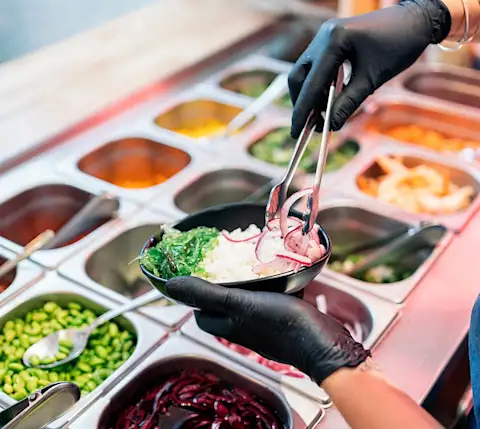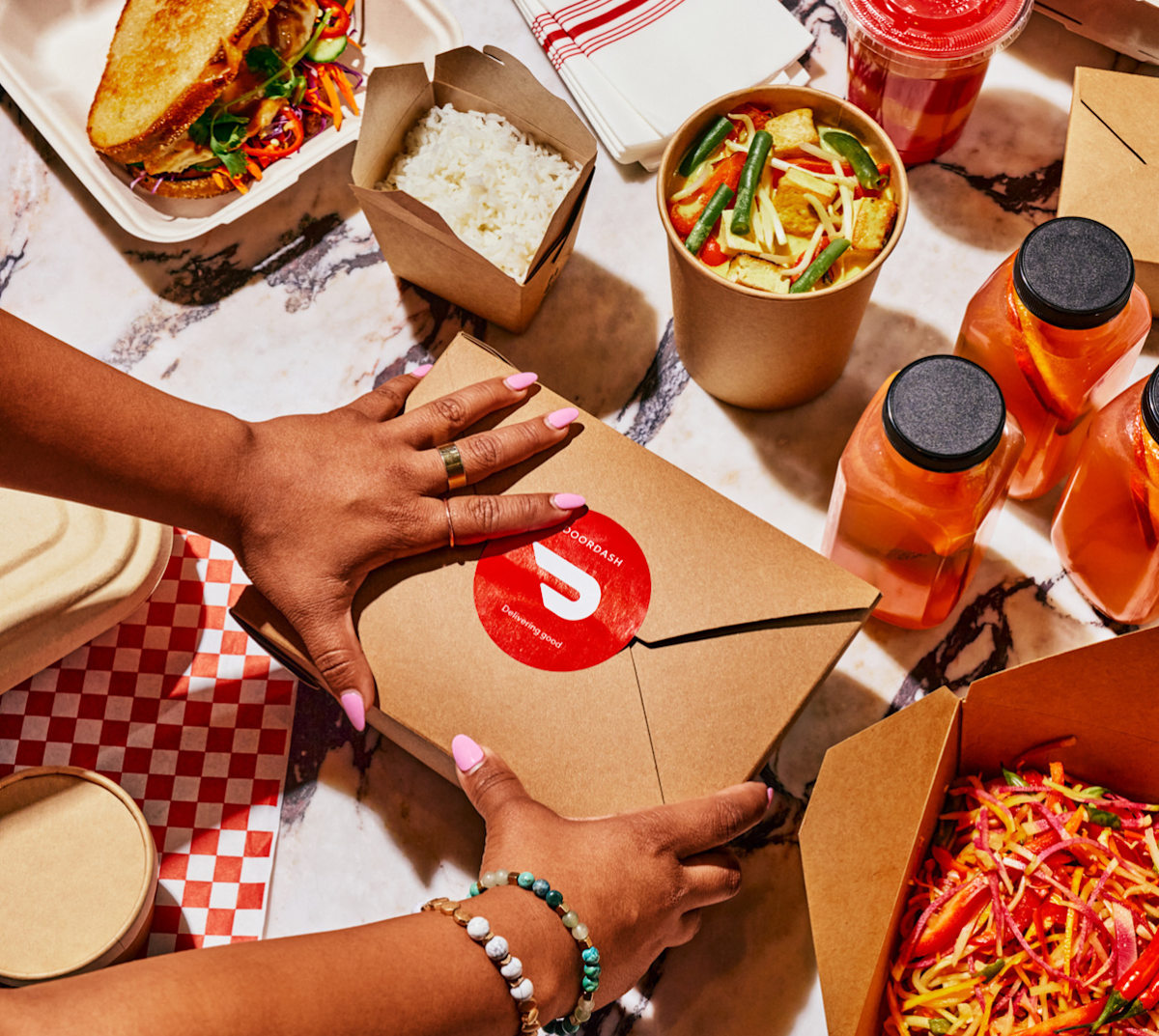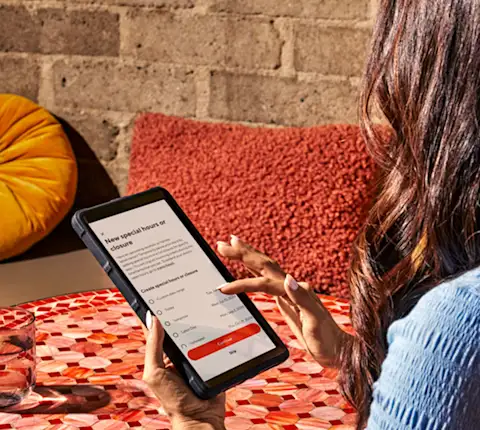There's a good chance that leasing a commercial space is the right move for you if you're considering opening a new restaurant. That's because if you buy a property, you need to have complete confidence in your restaurant concept and location, and that level of certainty only comes when your business is a proven success.
Purchasing real estate also brings additional expenses, such as property taxes and mortgage insurance, which can impact your liquidity. By comparison, leasing space for a restaurant gives you more freedom and flexibility to try a new concept, expand into a new market, or launch a restaurant business for the first time.
But negotiating a commercial lease can be daunting. The terms and conditions for renting a restaurant space are almost always negotiable, and while landlords and real estate agents are seasoned pros when it comes to bargaining for the best contract, this isn't necessarily an area of expertise for most restaurateurs.
It's essential to know the types of restaurant leases available, how to negotiate the terms of your lease effectively, and potential concerns and considerations to think through before signing.
Understanding the different types of restaurant leases
Because a restaurant is a place of business, you'll likely be signing a commercial property lease or retail lease agreement with a landlord. There are several different lease types to choose from, and here are four that you're likely to encounter.
1. Gross Lease
When you think of renting a space, a gross lease is probably what comes to mind. Much like a residential agreement, you pay a fixed monthly sum to the landlord, who covers expenses such as building maintenance, property taxes, insurance, and, in some cases, utilities. Rents tend to be higher with a gross lease, but you know exactly what you're paying so you can budget accordingly.
2. Net Lease
When you opt for a net lease, you're making a tradeoff: while your base rent is likely to be lower, you'll be on the hook for property taxes — and depending on the agreement, potentially liable for insurance and maintenance costs as well. But these are one of the lease types where it's normal to negotiate the terms.
Covering the costs of your own maintenance could work to your advantage; you have more autonomy when making repairs and improvements, and you won't have to wait for your landlord's contractors. But before you sign the lease agreement, thoroughly inspect the property, and make sure you're always leaving room in the budget for those extra maintenance expenses.
3. Percentage Lease
It's not uncommon for restaurants to sign a percentage lease because in this arrangement, you pay a predetermined portion of your sales once you pass a certain revenue threshold on top of your base rent. This means that rent tends to be very low while your business is finding its footing — but as you become more profitable, you may end up forking over substantial sums to your landlord
4. Variable Lease
A variable lease has pros and cons because, as its name implies, it can fluctuate higher or lower based on how your business performs against certain indexes. When the performance is strong, the rent rises; when it's weak, it falls.
You and the landlord selected the indexes together, making negotiation a crucial part of the variable lease process. Together, you set the terms of the indexes, the rate increase percentages and caps, and the increments at which base rent will be raised. It's great because you get to co-design your lease agreement — but it's not so great when your payments can go up or down unpredictably.

Key factors to consider before signing a restaurant lease
So, you're vetting potential properties to lease for your restaurant and requesting details from their owners to help inform your decision. Before any negotiations commence, there are some questions you should ask to assess whether this is an opportunity worth pursuing.
How long can you lease it for?
Remember, one of the main benefits of leasing over buying is that you can trial a restaurant concept with reduced risk because you won't be making such a massive investment. If you get drawn into a long lease, that benefit goes out the window. The last thing you want is to be on the hook for five or ten years of rent payments if your business isn't a success. Try to sign a lease agreement for one or two years with renewal options.
What are the termination rules?
Since the landlord owns the property, they hold the power. One component you should double- and triple-check before entering negotiations is the eviction terms, as well as exit clauses and the penalties for breaking your end of the lease agreement. If you have concerns, bring these to the negotiating table because these are the types of elements that can be changed.
Is there an assignment clause?
An assignment clause, in short, is the ability to assign your lease to someone else — and you should strive to have one in your contract at all costs. That way, you can close your restaurant but let another business take over the space and the payments — or you can sell your restaurant to a new owner without seriously compromising its value.
Are you allowed to renovate it?
Unless you're paying a premium price to move into a turnkey space, you'll likely need to undertake some renovations. That's particularly true if you're transforming a conventional commercial or retail space into a restaurant with unique heating, cooling, plumbing, ventilation, and electricity requirements.
Generally, landlords should understand this. But it's nevertheless important that you know the technical specs for what your restaurant will need, and that you get the landlord to agree to these in writing.
Have you talked to the tenants?
Last but certainly not least — if you're interested in leasing a space, talk to the business owners who are already renting there. What kind of relationship do they have with the landlord? Are promises kept, and is the property well-maintained? Are they planning to renew their leases?

Here are ten expert tips for negotiating a restaurant lease
Landlords and real estate agents are professional negotiators: they bargain daily and have built their careers on getting the best deal — and the highest rents — for themselves or their clients.
Restaurateurs, in contrast, just want a place they can afford to build their business and share their delicious dishes with their guests. As a result, they're prone to accepting deals that seem reasonable rather than actively advocating for themselves.
Don't be passive. Know that property owners and their agents expect you to counter them and that the first deals they present to you are far from the best offers they can afford. As you enter a negotiation, keep these top ten tips in mind:
Remember, go big or go home: Since you can be sure that the landlord will initially come to you with inflated numbers and fully anticipate counter-offers from you, don't be afraid to inflate your own. Always ask for more than you want so you can adjust downwards to your ideal.
Come to the table with numbers: Build out your business plan before negotiating, and know it inside and out. This allows you to set priorities. What are the must-haves versus the nice-to-haves? What are your fixed costs and projected revenue? How far are you willing to stretch your budget?
As always, knowledge is power: Along with your business plan, understand the local commercial real estate market to deduce just how much leverage and bargaining power you have. What are the current lease rates in the area? How long has this particular property stood empty?
Angle for tenant inducements: If you have sufficient bargaining strength, you can potentially negotiate for perks that incentivize you to sign a lease. These are tenant inducements and can include bonuses such as building upgrades or a few months of free rent.
Request some free rent regardless: Getting that first two or three months of rent covered is not an outrageous ask. It's more common than you might think for landlords to waive payments while you renovate your restaurant, hire and train staff, and get your restaurant off the ground. Find out how flexible they're willing to be, and when you settle on a date for the first payment, have it written into the lease agreement.
Discuss repair costs right away: Who's responsible for doing repairs? This will differ depending on the lease agreement type, but it's an essential topic to raise during negotiations. Landlords may be willing to split costs, for example, or they may be more keen to cut you a break on rent when repair work needs to be done, rather than pay for the contractors themselves.
Establish rules around raising rent: It's standard practice for the rent on a commercial lease to rise at set increments over time. However, negotiate how often these intervals happen and when the increases will start. You will also want to discuss a rent increase cap so the payments or percentage can't accrue indefinitely.
Protect against business conflicts: You can add a competitor clause to your contract. This clause prohibits the landlord from leasing a space in the same development to a business that would directly contend with you for customers.
Prioritize your storefront access: If possible, negotiate for some designated parking spaces to increase your business's accessibility. This is also relevant now that pickup and delivery have become core offerings for restaurants.
Seek trusted professional advice: Have experts on your side. A commercial real estate attorney can help represent you in negotiations and do a final review of your contract to ensure there's nothing detrimental in the fine print and that it contains everything you agreed to. Your designer, architect, or general contractor should also look at the lease and the property before you seal the deal.
Common pitfalls to avoid when leasing restaurant space
By now, you know some of the most important red flags to watch for when negotiating a restaurant lease. You want to steer clear of long-term commitments with limited renewal options. You know you need to fully comprehend the eviction and exit clauses that the landlord wants to impose. You should think carefully before agreeing to any percentage lease, where you could eventually relinquish significant portions of your profits.
But there are other areas where you should proceed with caution in the commercial leasing process. Here are five that are highly applicable to restaurant owners.
Be wary of buying signals: As you view a space, sharing your vision of the restaurant's layout and design is intuitive — and perhaps it may seem practical. But any statement of interest or intrigue is a "buying signal." It shows how much you want it and shifts the balance of power away from you and toward the landlord.
Measure the entire space: "Phantom space" is a common issue where landlords base rent on exaggerated square footage. Avoid this discrepancy by taking measurements yourself to confirm the actual size.
Hold the owner to account: You're establishing a restaurant, and that entails specific infrastructural requirements that the landlord needs to agree to. Provide a landlord work letter, listing precisely what you expect the property owner to guarantee before you put your signature on anything so you can gauge early whether this opportunity is worth pursuing. The lease contract should also contain "delivery of premises" terms that dictate the condition you'll receive the property, including fundamental specs such as electrical, gas, and HVAC capacity. Review this carefully with your general contractor, designer, or architect because restaurants need far more than the typical retail space.
Don't let anyone rush you: Never feel like you need to hash out a deal in a single sitting. You can take your time in making a counter-offer, so do your due diligence, consult with trusted advisors and colleagues, and inform yourself with industry research and insights.
Know when to call it quits: Sentimentality is your worst enemy when negotiating a restaurant lease. No matter how much you might love a property, you always have to be willing to take an objective perspective and walk away if you can't get a satisfactory agreement. There will always be other properties.
Leasing space for restaurants can be a smart strategy
Perhaps you won't have to negotiate too many commercial leases throughout your career — but those few that you do need to negotiate could have enormous ramifications for your business. Approach these conversations with eyes wide open, and educate yourself as much as possible. Watch videos on the art of negotiation, stream webinars on commercial real estate, and talk to other business owners in your neighborhood. Accept all the help you can get — it's worth it when you sign a lease agreement that has everything you want and more.
And once you're settled in your new space and are growing your brand presence, a third-party delivery platform like DoorDash can help you maximize your reach while providing you with behind-the-scenes tools, analytics, and technologies to boost sales and drive profitability.



